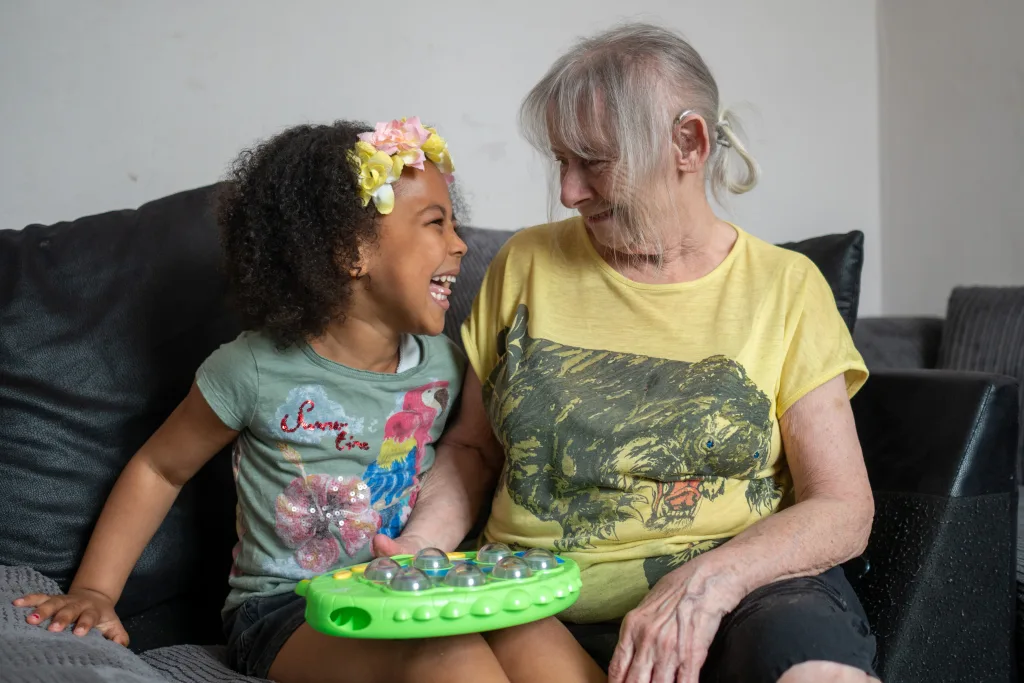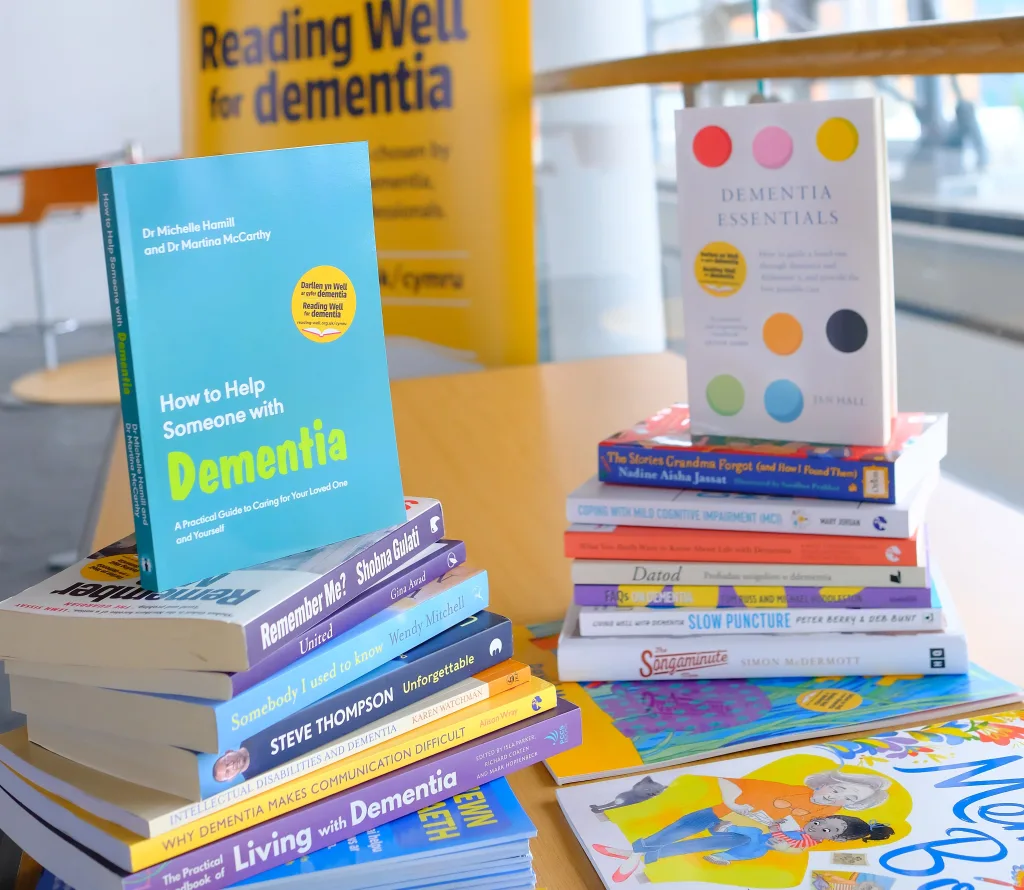The Power of Reading: Unlocking the Benefits of Reading for People living with Dementia
Living with dementia or caring for someone with dementia can be challenging. By 2025 there will be over 1 million people living with dementia in the UK, and in England, 1 in 3 people will end up caring for a person living with dementia in their lifetime.1
Finding ways to engage and support people with dementia can make all the difference. One powerful tool is the act of reading. In this blog post, we’ll explore the benefits of reading for dementia.
Understanding dementia

Living with dementia presents unique challenges. Difficulties with memory and communication alongside changes in behaviour and mood can be daunting. Appropriate information, advice and support has an important role to play in helping people living with dementia. It can help people understand their symptoms and plan for the future.
Reading about dementia is a great way to learn more about it. From books written by health professionals, to personal accounts of lived experiences, our Reading Well for dementia book collection provides a range of information about dementia.
Family members and carers
Family, friends and carers can also experience challenges that impact their own health and wellbeing. Family or friends often assume the role of carer with little, or no understanding of dementia, or its effects on themselves or the person they care for.2
Alongside helping people to learn more about their condition, reading can support the wellbeing of carers. Reading can boost their understanding and provide information and support they can use in their day-to-day activities, as well as helping carers to manage their own wellbeing and reduce feelings of stress.
Regular readers for pleasure had fewer feelings of stress and depression than non-readers, and stronger feelings of relaxation from reading than from watching television or engaging with technology intensive activities.3
The benefits of reading for people affected by dementia
Reading helps to keep a sense of identity, encourages reminiscing, and sharing of new ideas through a connection with stories and information4. Engaging in reading is a simple yet powerful way to keep the mind active, reduce stress, improve mood and reduce feelings of isolation5.
Reading, especially as part of a reading group can be an effective and meaningful activity for those living with dementia6. Joining a reading group or book club can increase social connections and support wellbeing.
Including reading in your daily routine doesn’t have to be difficult. Simple things like choosing a book that interests you, setting aside reading time, and creating a comfortable reading space can make a world of difference.
Building connections and memories

Reading is not just a solitary activity—it’s also a powerful tool for building connections and creating memories.
While reading won’t stop dementia from progressing, reading with others is a good way to exercise the brain and build social connections.
It can also help with understanding other people’s feelings. Whether it’s sharing a favourite book from childhood or reading aloud together, the act of reading can lead to meaningful connections between people living with dementia, their families and carers.
Keith, who is a member of the Reading Well for dementia co-production group, was diagnosed with dementia when he was 55. He was also on the Reading Well for dementia book selection panel and when asked about reading, said:
“I always go back to the C.S. Lewis quote… which is I read to not be alone. And that is so true. I get an enormous amount of pleasure out of reading… but then I love talking about it with people.”
Keith, Reading Well for dementia book selection panel
How reading well for dementia can help

Reading Well for dementia recommends helpful reading for people living with dementia, their family members, friends and carers. The books provide reliable information, advice and support as well as personal stories.
Reading Well books are chosen through a robust selection process that includes policy and evidence mapping, needs analysis and consultation with health experts and people with lived experience.
The books are available for anyone to borrow, for free, from public libraries in England and Wales. Titles are available in a range of formats including audiobooks and e-books. Alongside the books are a selection of recommended digital resources providing additional information.
Check out the curated list of books and digital resources here.
92% of readers surveyed found their Reading Well book helpful and 81% reported that their Reading Well book helped them to understand more about their health needs.
90% of health professionals surveyed said Reading Well books helped to provide valuable support for their patients and carers outside of consultation time. (footnote missing)
“There’s such a range of books on the list that I hope it will raise awareness and let go of some of the stigma around dementia.”
Maxine, Reading Well for dementia book selection panel
Reading is more than just a pastime —it’s a powerful tool for promoting health and wellbeing, and connection for people affected by dementia. By adding reading into routines and using resources like Reading Well for dementia, we can unlock the transformative power of storytelling and enrich the lives of those affected by dementia.
- DHSC (2013) Dementia Care and Support. ↩︎
- Aldridge, Z. et al. (2020) Admiral Nursing – A model of specialist dementia care in acute hospitals. ↩︎
- Billington, J. (2015) Reading between the Lines: the Benefits of Reading for Pleasure. Quick Reads. University of Liverpool ↩︎
- Billington, J. (2019) Reading and Mental Health ↩︎
- Ibid ↩︎
- Centre for Research into Reading Information and Linguistic Systems. (2012) A literature-based intervention for older people living with dementia. University of Liverpool ↩︎
